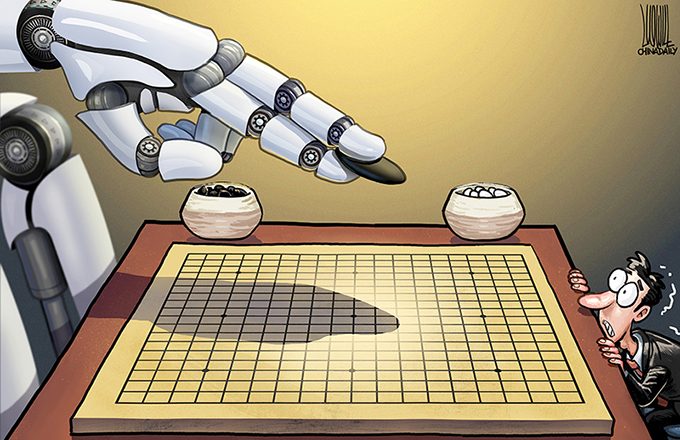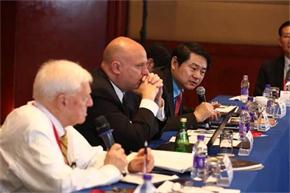The B&R Initiative: Co-building a silk road for the 21st century
As an international gathering on the Belt and Road Initiative gets under way in Beijing, the world needs to pay attention. A key component of China's 21st century diplomacy, combining movement, clarity of vision and powerful means, President Xi Jinping's Belt and Road Initiative for the 21st century has a strong impact on international relations and global business.
While the opening-up launched by Deng Xiaoping was mainly about synergies between Beijing and the world serving China's internal modernization, Xi's opening-up 2.0 structured around the Belt and Road Initiative takes this cooperation beyond China's borders.
One of the most singular aspects of the Chinese contemporary story is the transformation from a mere receiver of ideas, practices and investments into a contributor of global security and development. A four-year-old project, the initiative is already shaping the international agenda for, at least, five main reasons.
First, the construction of physical infrastructure is at the center of Xi's vision and this is in line with China's past achievements. The Dujiangyan irrigation system, the gigantic Great Wall or the Grand Canal were the predecessors of China's modern ports, airports, highways, high speed train networks or entire cities. When China presents an ambition in relation with infrastructure, the world needs to take it seriously.
Second, in a very short period of time, Beijing was able to gather momentum for the creation of new international financial mechanisms to support the Belt and Road Initiative. The Silk Road Fund, the Asian Infrastructure Investment Bank (AIIB), the New Development Bank (NDB) are young and promising institutions positioned to transform a vision into reality.
Third, this is our time's geopolitical realities which give its sense to the initiative. With the Belt, the vision aims to create more connectivity, trade and exchanges through the Eurasian continent, but the Road indicates that Southeast Asia, South Asia, the Indian Ocean and Africa are key elements of a vision for the 21st century. While the two edges of the ancient Silk Road were Europe and Imperial China, the two edges of the Belt and Road are Africa and Asia.
Fourth, being essentially about connectivity, the content of the Belt and Road remains open, it is a project which can integrate new ideas and realities more than a rigid program. Besides the traditional land, maritime or air connections which will be reinforced, digital new silk roads backed by evolving technologies will increasingly enrich the relations between China and the world.
Fifth, inclusiveness defines the Belt and Road vision. It is not a plan of the East to contain the West, an enterprise of the South to weaken the North, a challenge to the Bretton Woods or the UN mechanisms, it merely aims at more global synergies for co-development and peace.
One of the paths leading to what Xi calls, in a reinterpretation of Chinese classical universalism, a "community of shared future for mankind", the Belt and Road Initiative is a concrete illustration of China's peaceful renaissance.
In this context, while the European Union should be even more committed to this constructive vision, it would be a mistake for India and the US to remain passive spectators of such a collective endeavor.
China articulated first the vision of the Belt and Road for the 21st century but she is neither the only engine for its practical advancement nor the owner of its objective realizations.
A real progress along a path toward shared prosperity and peace can't be about benefits at the expense of the others, it is a movement to create more value for all.
The author is founder of the Europe-China Forum and of the New Silk Road Initiative, director of the Academia Sinica Europaea, CEIBS.



















